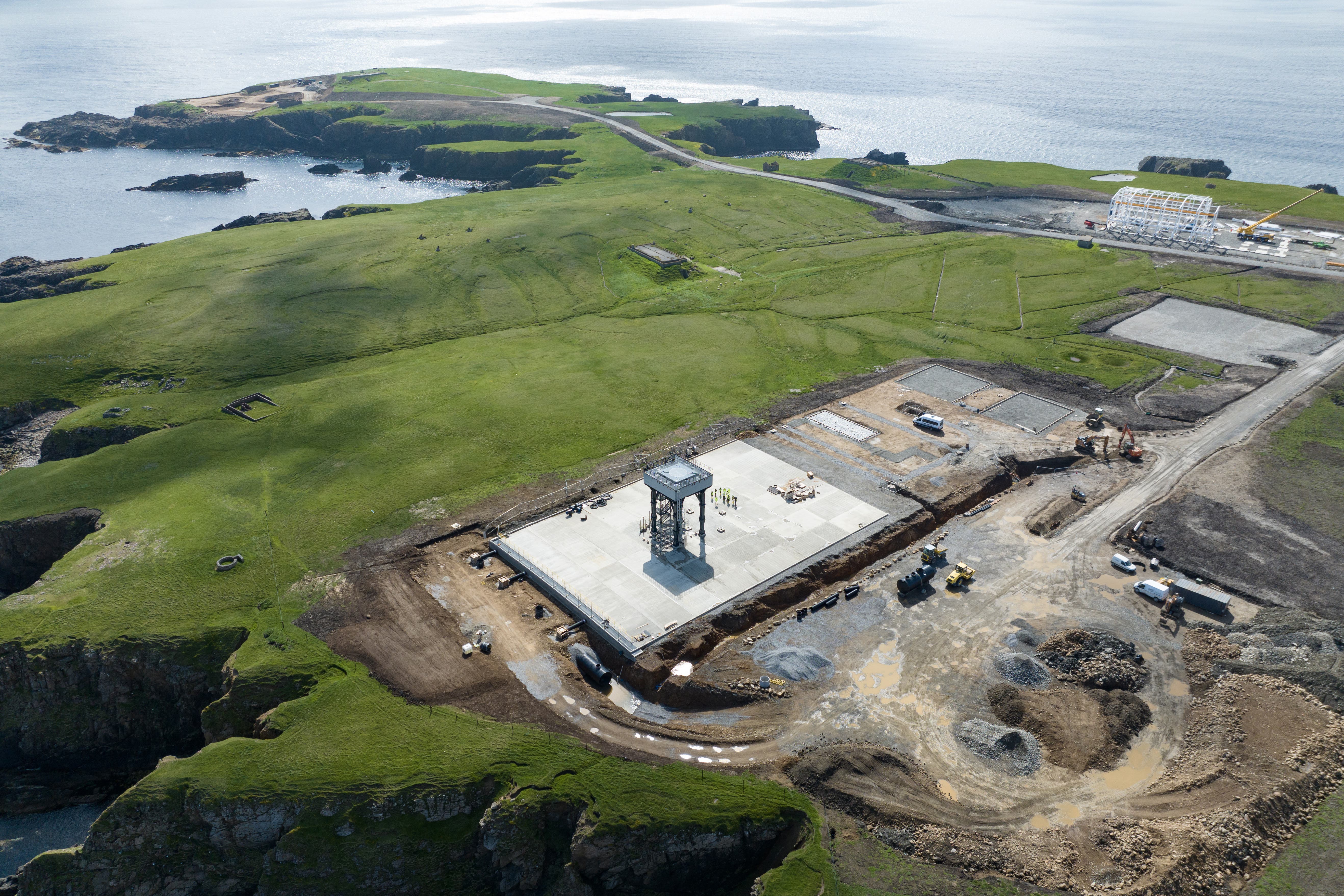German company aims for rocket launch every month from Shetland Islands
Rocket Factory Augsburg is one of several firms planning to use launch pads at SaxaVord Spaceport on Unst.

Your support helps us to tell the story
From reproductive rights to climate change to Big Tech, The Independent is on the ground when the story is developing. Whether it's investigating the financials of Elon Musk's pro-Trump PAC or producing our latest documentary, 'The A Word', which shines a light on the American women fighting for reproductive rights, we know how important it is to parse out the facts from the messaging.
At such a critical moment in US history, we need reporters on the ground. Your donation allows us to keep sending journalists to speak to both sides of the story.
The Independent is trusted by Americans across the entire political spectrum. And unlike many other quality news outlets, we choose not to lock Americans out of our reporting and analysis with paywalls. We believe quality journalism should be available to everyone, paid for by those who can afford it.
Your support makes all the difference.A German company hopes to launch rockets into space as often as once a month from the island at the northernmost tip of the UK.
Rocket Factory Augsburg’s (RFA) chief commercial officer said excitement is building ahead of their “Olympic gold medal” moment this summer – when they will try to achieve Europe’s first-ever launch delivering satellites into orbit.
The company is one of several planning to use launch pads at SaxaVord Spaceport on the island of Unst, the most northerly of the Shetland Islands.
In December, SaxaVord was granted the UK’s first vertical launch spaceport licence, allowing up to 30 launches each year.
Jorn Spurmann spoke to the PA news agency about RFA’s plans for the first launch of their RFA One launcher – a 30m-tall three-stage rocket which can deliver a 1,300kg payload to a sun-synchronous orbit around Earth.
He said “everything looks positive” for the first launch taking place in the summer but much will depend on their testing process.
Mr Spurmann said: “We plan to be on pad in the summer and start the (testing) campaign.
“Then we have an anticipated first launch attempt and we see how it goes.”
He added: “We have on the Shetland Islands a dedicated launch pad purely for RFA. So, there’s no time pressure for us.”
He said people on Unst, which has a population of around 600, were supportive of the project, saying: “The locals, they pretty much realise what a big opportunity it is for them.”
After testing in Germany and elsewhere, the various components of the rocket and its cargo of satellites will be shipped to Lerwick in around a dozen containers before being driven north to Unst.
Mr Spurmann said: “We do a full assembly and checkout testing in Augsburg.
“And then we put it into a dozen containers roughly.
“Then the final remating of these stages and encapsulation of the fairing, final testing – that all happens on site at the launch pad.”
A “hot test” of the rocket’s first-stage engines at the launch pad is expected in the months ahead of the first flight.
Ultimately, RFA wants to re-use the lower stage of its rockets in order to generate savings, similar to the Falcon series of rockets used by Elon Musk’s SpaceX.
While this will not take place on the initial flights, the first stage of the RFA One rocket would be parachuted back to splash down in the sea after propelling the upper parts of the vehicle high into the atmosphere.
The nine Helix engines on the lower part of the rocket make up the bulk of the vehicle’s cost.
Mr Spurmann said: “We’re planning mid-term to get to a launch cadence of once a month, so 12 a year.
“That should happen over three years. Then it really depends where the market is – if the market needs more, we have flexibility to do more.”
RFA’s team of about 300 people will see the first successful launch as an “Olympic gold medal” moment, Mr Spurrmann said, as the project has been years in the making.
However, if the attempt ends in failure, he said RFA would be ready with a second vehicle “as soon as possible” for another try.
Last year, RFA’s British subsidiary received £3.5 million from the UK Space Agency to support its launch plans.